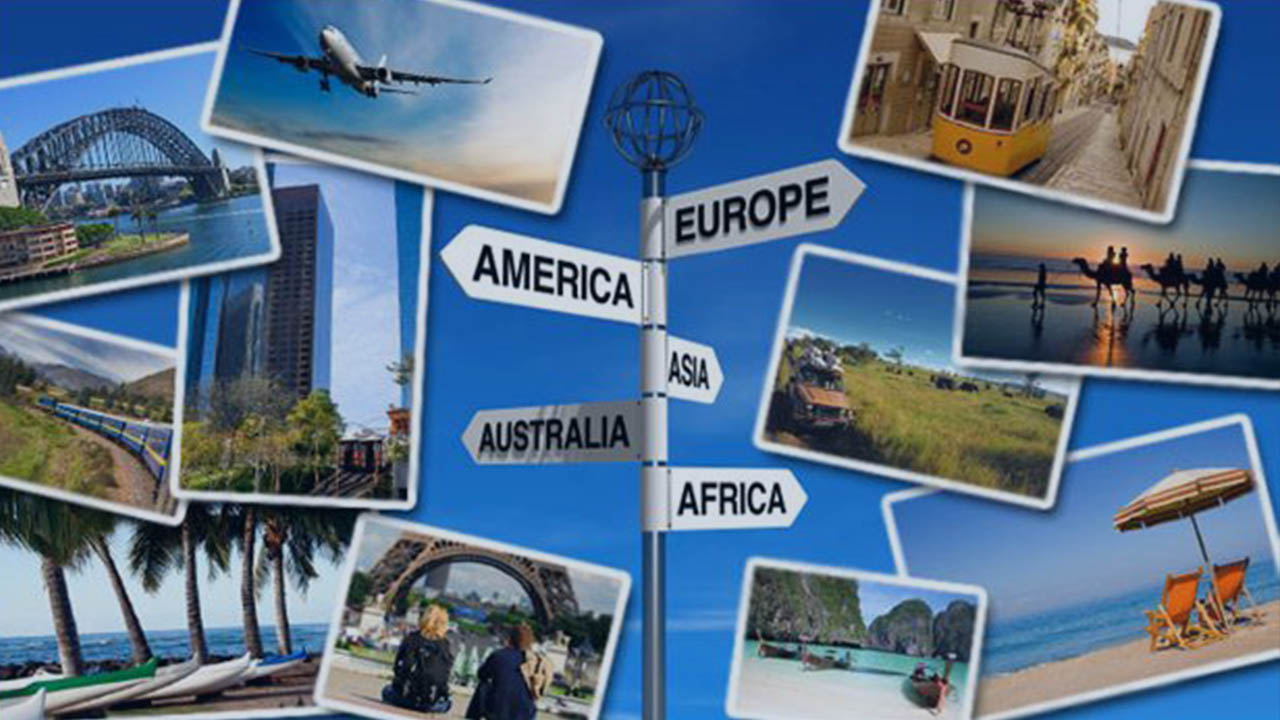Embarking on a journey often involves the guidance and coordination of professionals in the travel industry. Two integral roles in the world of travel are a tour guide and tour operator, each playing distinct but interconnected roles in creating seamless and enriching travel experiences. The question often arises: what is the difference between a tour guide and a tour operator?
In this blog, we will delve into the nuances of these roles, clarifying their responsibilities, expertise, and the unique contributions they bring to the table. By understanding the distinctions between a tour guide and a tour operator, travelers can better grasp the dynamics of their travel experiences and appreciate the valuable services provided by these individuals.

Introduction: Understanding the Roles
When it comes to planning and executing a successful trip, understanding the distinct roles of a tour guide and a tour operator is crucial. Both play vital parts in ensuring a memorable and organized travel experience for guests. While the tour guide focuses on providing on-ground assistance, and enriching the journey with insights and knowledge, the tour operator handles the logistics, itinerary planning, and overall coordination of the tour.
Key Responsibilities of a Tour Guide:
A tour guide is a knowledgeable professional who accompanies tourists, offering insights into local attractions, history, culture, and traditions. Their primary role is to educate and entertain guests, ensuring a rich and immersive travel experience. They also facilitate communication between visitors and locals, creating a seamless cultural exchange.
Core Functions of a Tour Operator:
A tour operator is responsible for designing and organizing the overall tour itinerary, transportation, accommodation, and activities. They negotiate with vendors, manage reservations, and ensure that all logistical aspects of the trip run smoothly. The tour operator acts as the behind-the-scenes orchestrator, making sure every detail is meticulously planned for a seamless travel experience.

Defining Tour Guide and Tour Operator
When planning a trip, it’s essential to understand the roles of a tour guide and a tour operator. A tour guide is a person who provides guided tours and assists travelers with navigating a destination. On the other hand, a tour operator is a company that creates and organizes travel packages, including accommodation, transportation, and activities.
Role of a Tour Guide
A tour guide is a professional who is responsible for providing information about historical sites, cultural landmarks, and local customs. They ensure a smooth and enjoyable travel experience for the tourists. They often lead groups, offer insights, and answer questions to enhance the travelers’ understanding of the destination.
Role of a Tour Operator
A tour operator focuses on planning and coordinating all aspects of a trip by arranging accommodations, transportation, activities, and services. They work behind the scenes to create comprehensive travel packages that cater to diverse interests and preferences.
Responsibilities of a Tour Guide
Tour guides play a crucial role in ensuring a smooth and enjoyable travel experience for tourists. Their responsibilities go beyond simply showcasing attractions and providing information. Here are some key responsibilities of a tour guide:
Expert Knowledge
Guides must possess in-depth knowledge of the locations they are guiding visitors through, including historical facts, cultural insights, and local traditions.
They should be able to answer questions confidently and provide fascinating details that enhance the tour experience.
Communication Skills
A tour guide should have excellent communication skills to engage with tourists of various backgrounds and ages. They must convey information clearly and enthusiastically while keeping the group organized and informed throughout the tour.
Problem-Solving Abilities
When faced with unexpected situations or challenges, a tour guide needs to think quickly and adapt to ensure the safety and satisfaction of the group. They must provide solutions efficiently to keep the tour on track and address any issues that may arise.
Responsibilities of a Tour Operator
A Tour Operator plays a crucial role in the travel industry by organizing and coordinating various aspects of a trip for clients. Their responsibilities encompass a wide range of tasks to ensure smooth and enjoyable travel experiences.
1. Itinerary Planning
One of the primary responsibilities of a Tour Operator is to create detailed itineraries that outline the destinations, activities, and accommodations for travelers.
2. Booking and Reservations
Tour Operators arrange bookings and reservations for transportation, accommodations, tours, and activities based on client preferences and budget.
- Securing tickets for flights, trains, or buses.
- Booking hotels, resorts, or homestays.
- Organizing guided tours and excursions.
When it comes to understanding the travel industry, it’s essential to differentiate between a tour guide and a tour operator.
Responsibilities
A tour guide typically accompanies tourists during their trip, providing insights on local culture, history, and attractions.
On the other hand, a tour operator is responsible for planning and organizing the entire trip, including accommodations, transportation, and activities.
Interactions
Tour guides focus on providing personalized experiences and answering tourists’ questions throughout the journey.
Tour operators work behind the scenes, coordinating with hotels, transport providers, and excursions to ensure a smooth travel experience.
Skills and Qualifications Required
When considering a career as a tour guide or tour operator, certain skills and qualifications are essential to excel in this industry.
Strong Communication Skills
Effective communication skills are crucial for both tour guides and tour operators. Being able to engage with tourists, provide information, and handle any queries professionally is key.
Furthermore, multilingual abilities can set you apart in this field, especially if guiding international tours.
Extensive Knowledge and Research Skills
A deep understanding of the destinations, attractions, and local culture is essential. Research skills are vital to provide accurate and interesting commentary during tours.
- Thorough knowledge of history, geography, and local customs
- Ability to adapt and include fresh information to keep tours engaging
The Role of the Tour Operator
The tour operator oversees the overall planning of the tour, including transportation, accommodations, activities, and scheduling. They handle the logistics behind the scenes to ensure a seamless and well-organized trip for the travelers.
The Role of the Tour Guide
The tour guide serves as the face of the tour, interacting directly with the travelers and providing them with information about the destinations, history, and culture. They enhance the experience by offering insights, answering questions, and ensuring that the travelers have a memorable journey.
Frequently Asked Questions
What is the difference between a tour guide and a tour operator?
- A tour guide is an individual who accompanies and informs tourists during their trip, while a tour operator is a company or organization that plans and organizes tours and activities for travelers.
Do tour guides and tour operators work together?
- Yes, tour guides often work with tour operators to provide guided tours to travelers. Tour operators rely on tour guides to lead the tours and provide insightful information to the tourists.
What are the responsibilities of a tour guide?
- Tour guides are responsible for leading tours, providing information about the attractions, ensuring the safety of the tourists, and offering a memorable experience during the trip.
What services do tour operators offer?
- Tour operators offer a wide range of services including planning itineraries, booking accommodations, arranging transportation, organizing activities, and providing tour guides for guided tours.
Can a tour guide also be a tour operator?
- In some cases, a tour guide can also operate their own tours and act as a tour operator. This allows them to have more control over the tours they provide and offer a personalized experience to their clients.
Final Thoughts
Deciphering the distinction between a tour guide and a tour operator offers a deeper insight into the dynamics of the travel industry. While a tour guide serves as a knowledgeable companion who enhances your travel experience through guidance and storytelling, a tour operator is the logistical mastermind behind the scenes, orchestrating seamless travel arrangements and itineraries.
Understanding this contrast empowers travelers to appreciate the specialized roles each plays in creating unforgettable journeys. A tour guide brings destinations to life, while a tour operator ensures the smooth execution of every detail. Both are indispensable in curating exceptional travel experiences.
By recognizing and valuing the unique contributions of both the tour guide and the tour operator, travelers can elevate their adventures and gain a deeper appreciation for the intricate tapestry of the travel industry.

